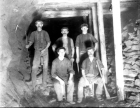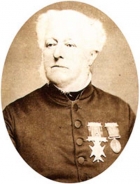Local History
Local history provides rich opportunities to engage children in their immediate local area and understand their own history and how history contributes to a greater overall understanding and bigger picture. In this section you will find articles, guides, and resources to enable you to make local history meaningful.
Sort by:
Date (Newest first) | Title A-Z
Show:
All |
Articles |
Podcasts |
Multipage Articles
-

Local History and the 2012 Olympics
ArticleClick to view -

Local history and a sense of identity
ArticleClick to view -

Local history fieldwork
ArticleClick to view -

Museums, schools and creativity: How learning can be enhanced
ArticleClick to view -

One of my favourite history places: Bournville
ArticleClick to view -

One of my favourite history places: Mount Fitchet Castle
ArticleClick to view -

Oral history - a source of evidence for the primary classroom
ArticleClick to view -

Place-names and the National Curriculum for History
ArticleClick to view -

Planning for local history
ArticleClick to view -

Pride in place: What does historical geographical and social understanding look like?
ArticleClick to view -

Research the history of the fire service in the local community
ArticleClick to view -

Saltaire: Planning for an effective learning experience on a living site
ArticleClick to view -

Shropshire's Secret Olympic History
ArticleClick to view -

Some teaching and learning strategies
ArticleClick to view -

Teaching local history through a family
ArticleClick to view -

The History around us: Local history
ArticleClick to view -

The Leeds Community History Project
ArticleClick to view -

The Stone Age conundrum
ArticleClick to view -

Using cemeteries as a local history resource
ArticleClick to view -

Using museum and heritage sites to promote higher-level learning at KS2
ArticleClick to view

